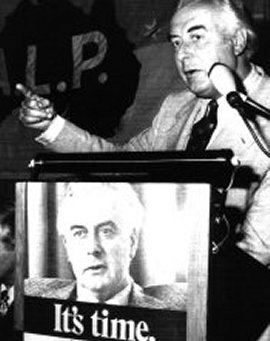social democracy
Canada: The NDP -- new wine in an old jar?

NDP leadership candidates.
Mike Marqusee on Occupy in 2012: 'Mass action has returned'

Occupy the London Stock Exchange.
The ALP left in Leichhardt municipality in the 1980s
'Primal Socialist Innocence and the Fall'?: the ALP Left in Leichhardt Municipality in the 1980s
By Tony Harris*
Paul Le Blanc: Marxism and organisation
By Paul Le Blanc
Comparing 1911 and 2011: What's relevant for socialists today?

The German gunboat, Panther, tried to halt French claims to Morocco in 1911.
The European workers' movement: dangers and challenges

In Portugal, November 2010 general strike called by the Communist Party-led CGTP and the
Malaysia: Two-party system – and a ‘third force’?

By Jeyakumar Devaraj
February 11, 2010 -- Aliran Monthly -- Malaysia has only known one ruling coalition in the past 52 years since independence. But the result of the March 2008 election has led to rising hope among many Malaysians that an enormous change might be around the corner – a two-party system under which the people are free to choose between two coalitions, which are both capable of governing the country.
The purpose of this paper is to locate the institution of a two-coalition system against a wider historical perspective.
The concept that every person has an equal right to select the government irrespective of his or her social status, wealth, education, religious affiliation or beliefs is a revolutionary idea. And it is relatively new.
The record of the Australian Labor Party: high hopes and big disappointments

The ALP and the fight for socialism
A history of the Australian Labor Party, 1890-1967
Conrick's History of the Australian Labor Party originally appeared in Direct Action (the precursor to Green Left Weekly), newspaper of the Socialist Workers League of Australia, between December 21, 1972, and June 14, 1973, and was published as a pamphlet by the Socialist Workers Party in 1979. The SWP is now the Democratic Socialist Perspective (DSP). This digital version was created by Ozleft. The pamphlet reflected the DSP's attitude towards the ALP at that time, however significant changes were introduced to this viewpoint in the 1980s. This document should be read in conjuction with The ALP and the Fight for Socialism. See also The ALP, the Nuclear Disarmament Party and the 1984 elections.
For a deeper analytical treatment of the social origins of social democracy in general and the ALP in particular, please consult Jonathan Strauss' series of Links articles on the concept of the labour aristocracy.
The labour aristocracy and opportunism in the history of Australian working-class politics
By Jonathan Strauss
The theory of the labour aristocracy argues that opportunism in the working class has a material basis. Such class-collaborationist politics express the interests of a relatively privileged stratum of workers who receive benefits supported by monopoly superprofits. Karl Marx and, especially, Frederick Engels, first developed this theory. It is most closely associated with V.I. Lenin, however, for whom it became “the pivot of the tactics in the labour movement that are dictated by the objective conditions of the imperialist era”.[1]